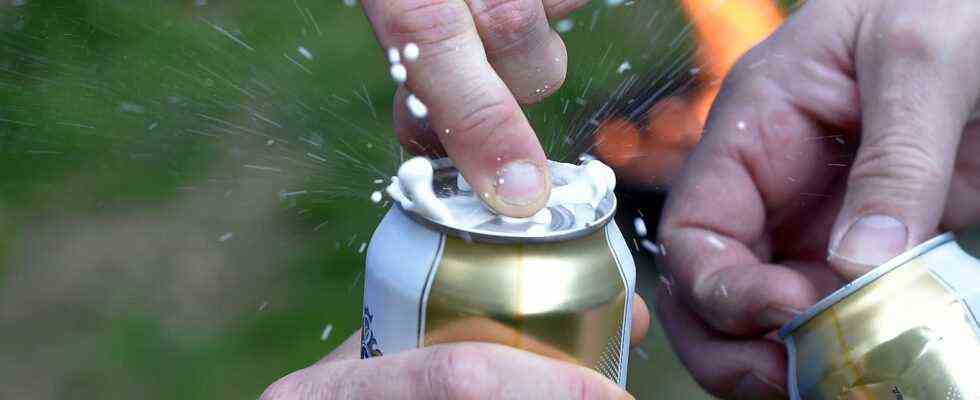Status: 07/07/2021 4:24 p.m.
A sparkling wine cellar had the cracking sound of a cork protected as a sound mark. A Bonn beverage company wanted to do the same with the sound that is made when a can is opened – without success.
From Klaus Hempel,
ARD legal editor
It is not uncommon for companies to have a certain sound legally protected, and it happens quite often. This can also be a certain, very distinctive melody. Everyone probably knows the wheat beer waltz from the Erdinger brewery. The brewery has the melody protected as a sound brand. The Deutsche Telekom advertising jingle, which consists of five tones, is also very well known and memorable. Another well-known example: the Sanostol children’s choir. All of these are legally protected sound marks.
In order for a melody or a certain sound to be registered as a sound mark by a state trademark office, certain requirements must be met: The sound must be something special. It needs to be clearly different from other sounds so that the average consumer associates it with a particular product or company. So it must have a high recognition value. This can also be the case with very short sounds or noises. The Henkell Sektkellerei set the sound of a champagne cork popping, including clinking it with champagne glasses, for advertising purposes and then had the sound protected under trademark law.
Noise does not indicate a specific manufacturer
Now a Bonn beverage company thought: What Henkell can do, we can too. The Ardagh company manufactures beverage cans. She wanted to protect herself from the sound of opening a can of carbonated drinks. The sound consists of the sound that is produced when it is opened. There is about a second of silence, then about nine seconds of tingling can be heard.
However, the EU Trademark Office refused to register it as a sound mark. Reason: The noise does not indicate a specific manufacturer. It is hardly distinguishable from the sound that occurs when other beverage cans are opened. The company sued this decision at the EU court in Luxembourg – without success. The judges dismissed the lawsuit. The sound is seen as a purely technical and functional element, they argued. In addition, it is not concise enough to distinguish itself from comparable sounds in the beverage sector. The Bonn beverage manufacturer can still appeal to the second instance, the European Court of Justice (ECJ).

